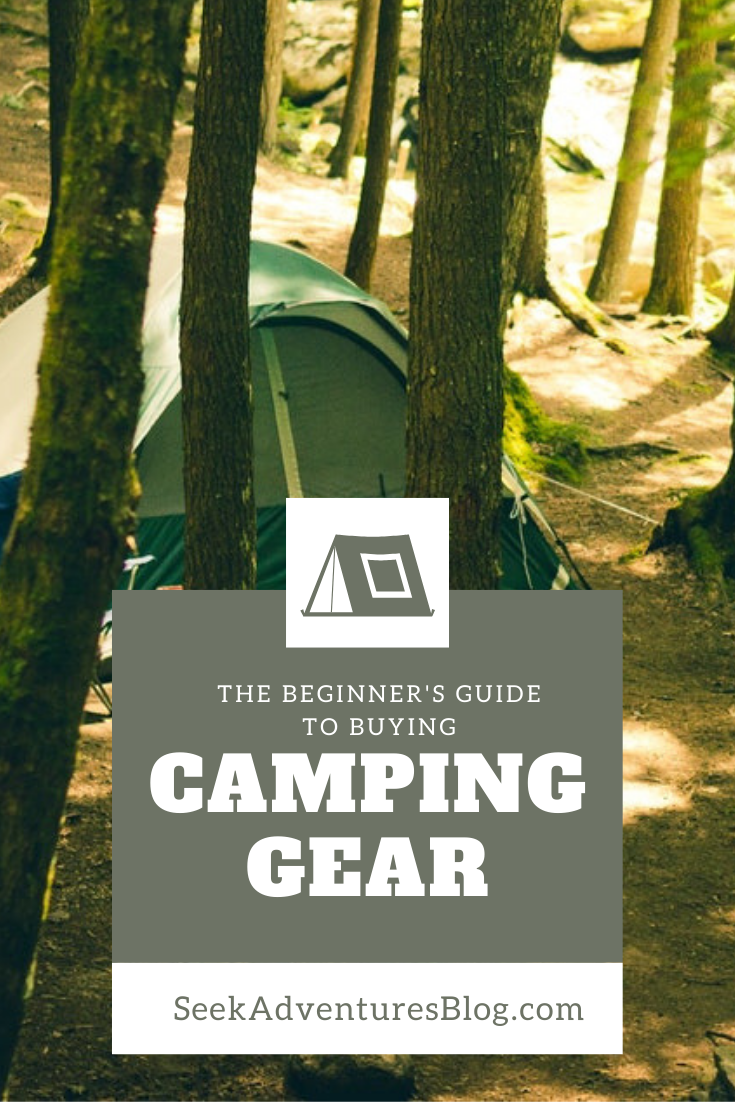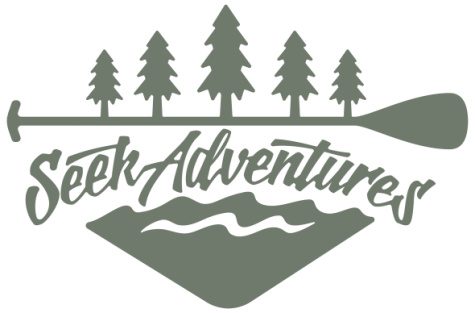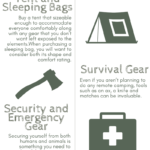Camping is so much fun but as you gear up for your first trip you may feel overwhelmed. Camping gear contributes a great deal to the kind of experience you will have and that’s why you need to ensure that you have the right kind of stuff before you head out to camp. But with so many products on the market, it can be difficult for a beginning camper to know which products are the best. We’ve put together this Beginner’s Guide to Buying Camping Gear to help you select the best and most useful products without spending too much money.
Disclaimer: This post contains affiliate links. As an Amazon Associate, I earn from qualifying purposes.
Cooking Gear
You will probably need to do some cooking when you are out in the wild. Camp cooking is one of the things I love most about camping so I tend to bring everything but the kitchen sink with me! That’s probably not what most people are looking to do so the trick for streamlined and easy camp cooking is to ensure that what you have is lightweight, portable and efficient at the same time.
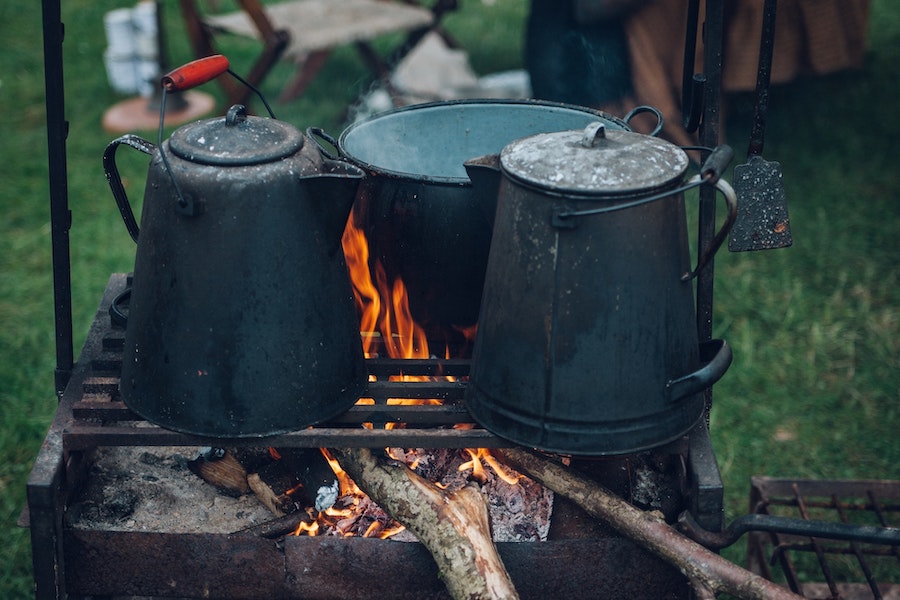
Unless you plan to eat cold sandwiches the whole time you will probably need something that will allow you to heat water or use a skillet. A cookstove is an essential gear when it comes to camp cooking but there are still so many on the market and knowing what to buy can be overwhelming. Here are a few of our favorites:
- Portable Camp Stove – Perfect for campgrounds and other areas where you will not have to lug gear
- Burner Stove – Perfect for backpackers
- Coleman Grill – Perfect if you have a little more space for gear like an RV or a pickup truck. You can read our full review of the Coleman RoadTrip® Grill here.
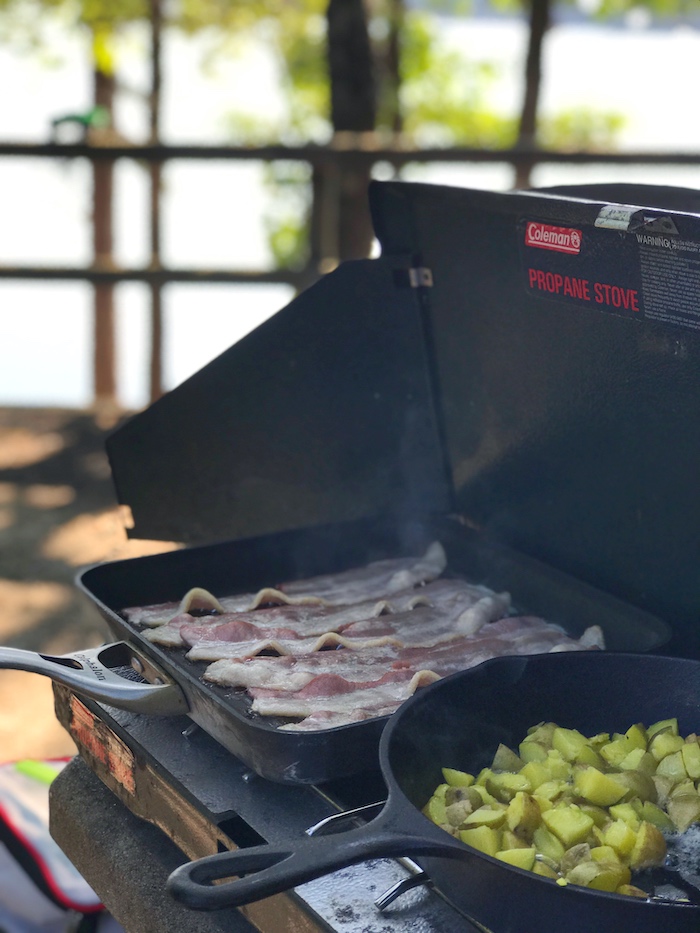
In addition to a stove or grill, you will need a few cooking and eating utensils in your camping gear box. You probably want to choose utensils that are lightweight and can serve multiple purposes. This will go a long way in making your load lighter, especially when backpacking. At a minimum we recommend:
- 10” Skillet
- Cooking Pot
- Mess Kit
- Cooking Utensils
- Eating Utensils
- Pot Holders
- Lighter
Here are a few all-in-one kits that take the guesswork out of buying:
Stanley Base Camp Cookset for Four – $59
Ozark Trail 10-Piece Cookset – $24
Tent and Sleeping Bags
Tent and sleeping bags are also essential camping gear that often confuses many beginners when they set out to buy them. When buying a tent, factor in the space and size, weight and whether its waterproof or not. Buy a tent that sizeable enough to accommodate everyone comfortably along with any gear that you don’t want left exposed to the elements. The rule of thumb here is to always buy a tent that can accommodate more people than the ones intending to use it for camping. For example, two people may want to consider a three or four-person tent. This prevents cramping up together and gives everyone some essence of privacy.
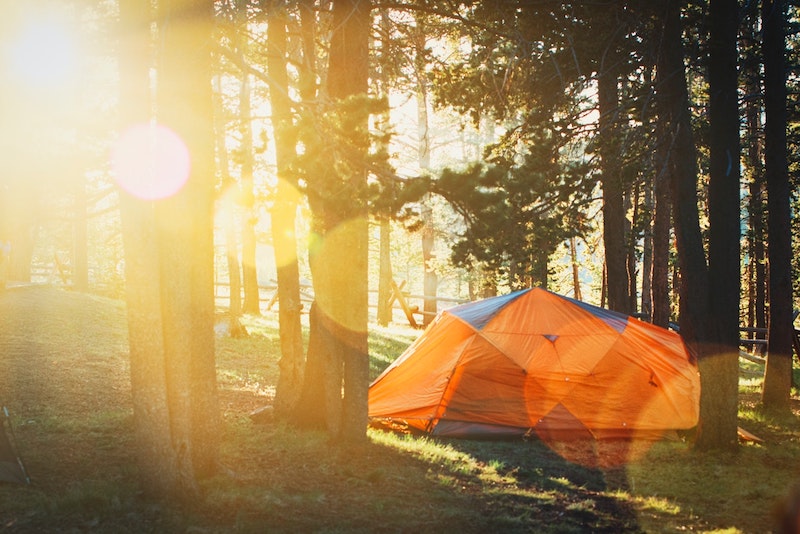
If you are bringing kids along for the camping trip, consider purchasing a compartmentalized tent to increase privacy. This is also great if you want to camp with friends or other family members.
If you will be doing a lot of backpacking you will want to consider other factors like weight and portability when choosing a tent. Learn more here and here.
Here are a few of our favorite tents:
Ozark Trail Six-Person Dark Rest Tent – $113
Coleman Cabin Tent with Instant Setup – $99
When purchasing a sleeping bag, you will want to consider both its shape and comfort rating. Mummy bags are snug and have a hood so only your face sticks out. Rectangular bags are popular for regular camping and they can be zipped together if you prefer to share a space with your partner. The comfort rating refers to how comfortable you will be in colder temperatures. Of course, you will want to think about where and when you will be camping and let that guide your decision.
Survival Gear
You need a few items to make your survival effortless when you are out camping. Even if you aren’t planning to do any remote camping, these tools can be invaluable.
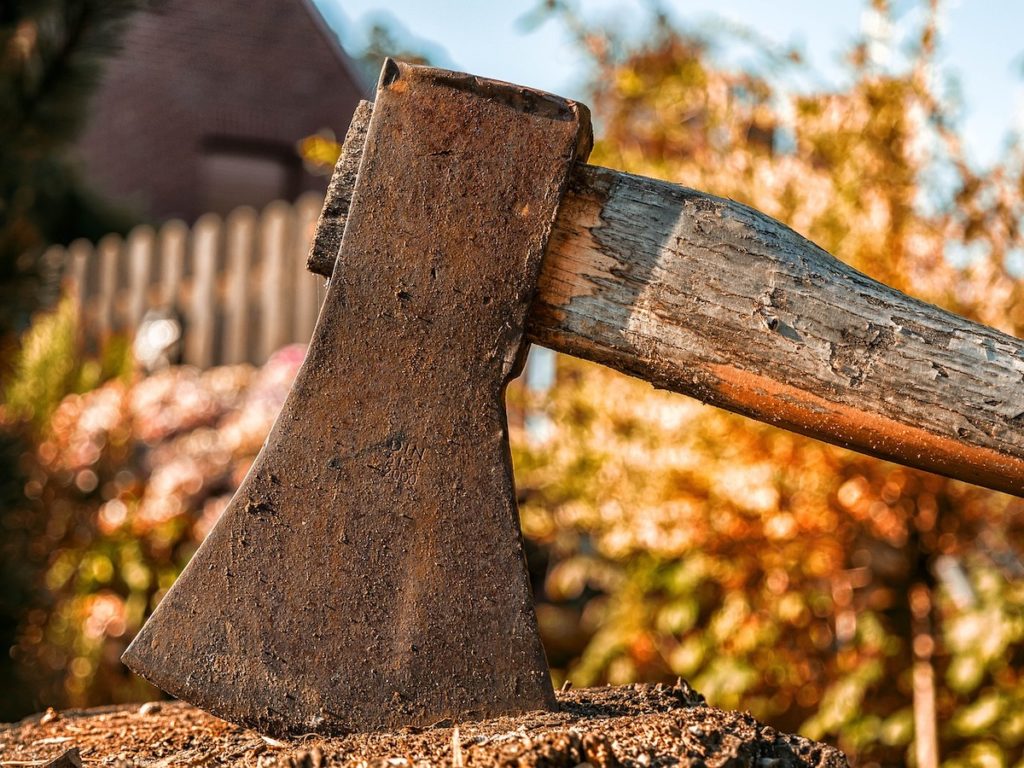
If you are going to be making a fire, you probably want a small ax or woodchopper and a shovel. We typically camp in maintained campgrounds but the fire pit often needs to be cleaned out and having a shovel makes that easy. A shovel is also needed for digging a latrine in remote situations. An ax will allow you to chop found wood into manageable sizes for your fire pit. be sure to check local regulations and follow the Don’t Move Firewood principle when required.
A knife can be used in a number of ways, including helping in the preparation of foods. At the very least you should carry a small pocket knife or multi-tool.
You will also want to have a source of light. In most cases, you will be camping in a place without electricity. Flashlights, lanterns and headlamps should be included in your gear. Here are a few we have found useful:
Security and Emergency Gear
Securing yourself from both humans and animals is something you need to consider while camping. Although most animals will avoid you, there is little more than a thin piece of canvas separating you and the great outdoors. For your security, you might decide to carry some pepper spray. In bear prone areas you may want bear spray and you should always use a bear-safe canister for any food items. In most cases, wild animals tend to steer away from camping grounds and a simple fire will warn them not to come close.
Carry a well-stocked first aid kit for possible injuries and bruises when you camp. When it comes to first aid, I believe you should always hope for the best but prepare for the worst. You can buy a pre-assembled first aid kit or assemble one yourself according to what you think is important to you.
It is also important to keep note of your GPS location and know where the closest hospital is. If you will be in an area with limited cell coverage, know where you would need to head in order to make an emergency call. Knowing this information could save precious time in a dire situation.
Keeping Hydrated
It’s important to keep yourself hydrated all when you are camping and this is where a good water bottle comes into the picture. I always find that I need more water when I’m camping then when I’m at home.
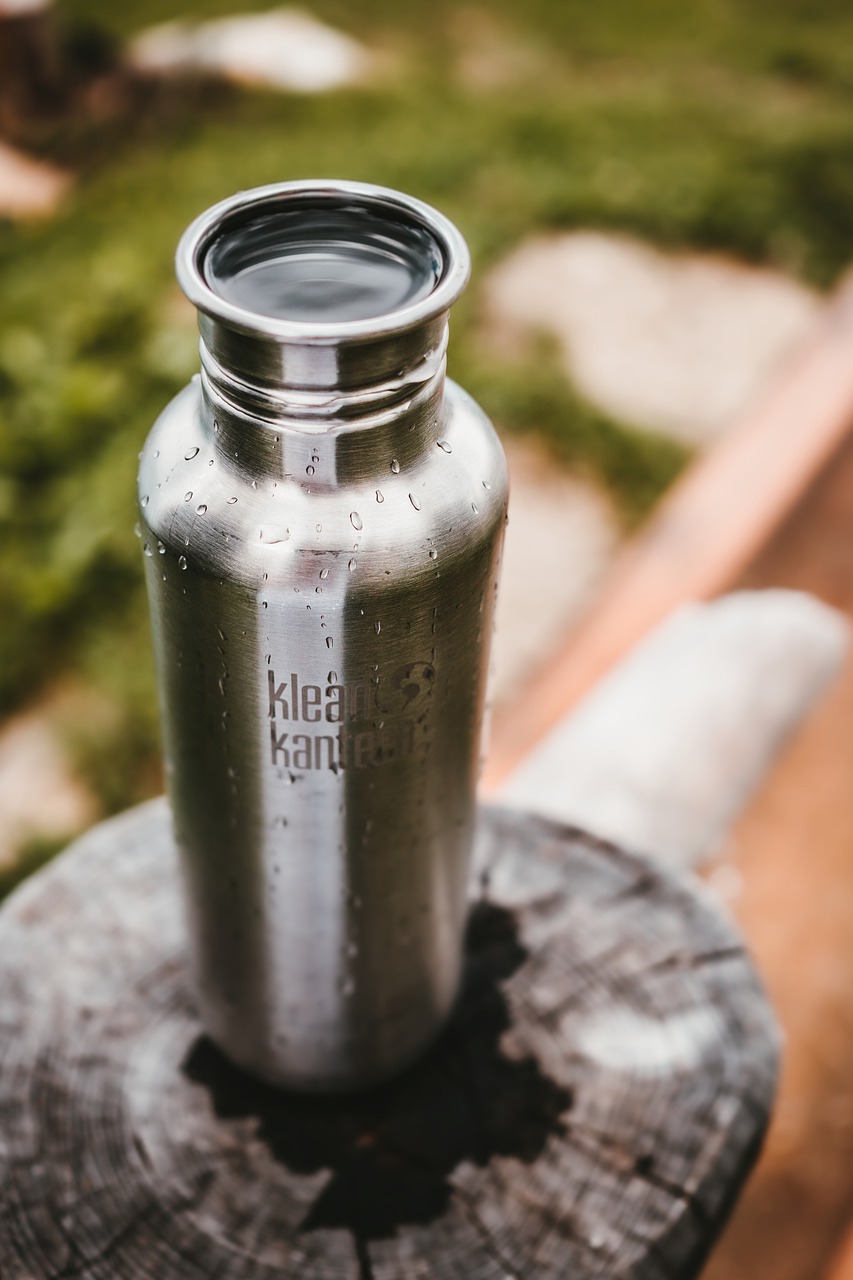
In campgrounds, water is usually easily accessible. In the woods, while hiking or backpacking, water can be scarce and available water may not be safe to drink. It’s always good to carry your own clean water to camping whenever possible. (I love my insulated Klean Kanteen.) When it’s not, carry a bottle that has a water filtration system or bring water treatment tablets to treat any found water before drinking.
Choosing Individual Camping Gear
Since we are all different, it’s good to customize your camping gear to your individual needs. Always consider when and where you will be camping. And as I said before, hope for the best and plan for the worst! What we have offered here are the basics that you get you off to a great start. We wish you all the best as you plan your next camping trip and may you have fun!

